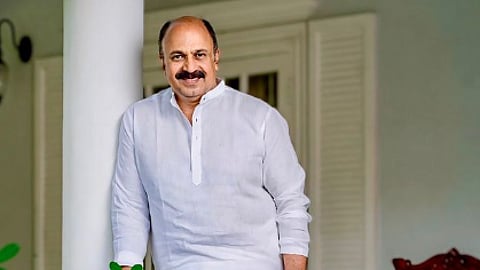

The Supreme Court, on Monday, September 30, granted interim protection to Malayalam actor Siddique in the rape case. The Kerala High Court had denied bail for the actor saying that there is prima facie evidence to show Siddique’s involvement in the crime and that his custodial interrogation was ‘inevitable’ for the case. The senior actor was booked by the Museum police in Thiruvananthapuram on August 27 this year under charges of rape and criminal intimidation, based on the complaint filed by a young actor.
The bench of Justices Bela M Trivedi and Satish Chandra Sharma granted interim protection and sent notices to the respondents in the case.
In his petition filed before the Supreme Court, Siddique claimed that he was “falsely implicated in a false and bogus case” because of an ongoing tussle between the Association of Malayalam Movie Artists (A.M.M.A.) and Women in Cinema Collective (WCC).
A.M.M.A. is the biggest film industry body for Malayalam movie actors dominated by senior actors and was until recently headed by Malayalam superstar Mohanlal. WCC was formed in May 2017 by women actors, directors and technicians from the Malayalam film industry, in the aftermath of the 2017 actor assault case and primarily works to highlight the gender disparity in the industry.
He also said that he was a 65-year-old senior citizen and there was no basis for apprehension that he may intimidate witnesses or tamper with evidence and that he would abide by all terms and conditions put forth by the court when granting him the anticipatory bail.
Siddique is on the run and a lookout notice has been issued by the Kerala police.
The survivor had spoken up about the alleged assault in 2019 too. But in the wake of the Hema Committee report which has triggered a new Me Too wave in the Malayalam film industry, the survivor approached the police and filed a complaint.
Siddique’s main contention for seeking bail in the Kerala High Court was built entirely on discrediting the survivor by pulling up posts from her Facebook account and citing the delay in filing a complaint. He has also repeated the same arguments in his bail petition before the Supreme Court.
He used the survivor’s Facebook posts - many of them unrelated to the current case - to claim that these posts showed the woman was capable of vitriol and therefore questioned why such a person who is unafraid on social media did not file a police complaint. The Kerala HC rejected his arguments, said that the character assassination was “unwarranted and uncharitable”, and rejected the bail plea.